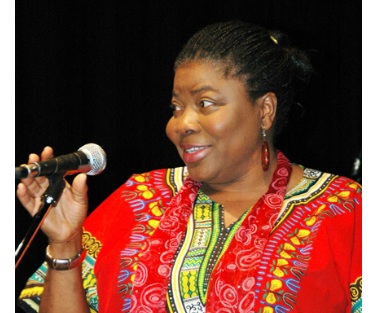They keep coming back
Surprise!! Surprise!! “Length of involvement in schooling significantly impacts participation in criminal activity”, reports the recently released Snapshot on Crime: Root Causes of Crime in Waterloo Region. It is good to have the statistical evidence to corroborate what we already know as parents, teachers, and concerned citizens.
To reframe, length of involvement in schooling increases positive life outcomes for youth. High school graduation and access to post secondary education enhances socioeconomic status in adulthood regardless of growing up in a low income family, parents’ level of education or single parent household. Good news. Although, being born poor sucks, it is not a life sentence. Education however is a big deal and exclusion from it puts you firmly on the school to jail pipeline. Education is the great leveler only if you have it, a child denied this basic human right is hurt for life and community safety is impacted. Access to post secondary education reduces the likelihood of adult criminality, increases employability, ability to stay employed and overall socio economic status. Access to education is a matter of equity and social justice, therefore addressing systemic exclusion and disenfranchisement is crucial.
This is nothing new. The Ontario Royal Commission on Learning and the Review of the Roots of Youth Violence report all decried non inclusive curriculum and recommended schools that reflect minorities and policy changes to address lack of engagement and under achievement of young males, black males, in particular. If black boys face more exclusion from the school system, youth who drop out of school are at higher risk for criminality. Black males are overrepresented in the criminal justice system; it then becomes imperative to challenge our beliefs about black boys being inherently criminal. Being young is a not a bad thing. I have yet to meet any person who was never young once. Being a male child is not bad either and there are communities where people go to any length just to have a male child. Being black is no disaster despite the media characterization of Black masculinity. But still, black males are more often the targets of physical aggression, racism, criminality and criminal victimization.
The African community always knew this. Ten years ago, we initiated an after school homework support program to promote school retention, graduation, equitable access and participation. The homework club provides a safe space where any minority child can feel at home to receive help right where they are at and develop the confidence that facilitates integration into the school system. Our neighbors in Toronto successfully advocated for Africentric schools and now have three, amid fierce debates on both sides. I do not intend to spark debates about segregation or integration. Both are not mutually exclusive.
Through our homework program, we work to mitigate the gaps in the mainstream schools. We provide culturally relevant books, resources and instructional materials that honor African and indigenous orality. We connect youth with strong black role models through career talks, job shadow and motivational talks. We immerse our volunteers, white and black, in the culture and life of the youth. Many volunteers come in wanting to help the kids, but they tell us when they leave (some never leave) that they are the ones helped significantly. Many of them want to be teachers and we gladly provide them with reference letters to get into teachers college. We also organize a parent forum to encourage parents to be their child’s best advocate, to understand the assumptions behind the streaming of students that can result in some youth not having the courses required for post secondary education which hinders their ability to maximize their potential and can permanently alter their life trajectories.
Waterloo region is now the 7th top destination for new immigrants and refugees. We cannot reverse the inflow of immigrants as immigration is Canada’s lifeline in the absence of a replacement population. We could admit only people who are not 15-24, male or black but, 20-somethings tend to settle down and have cute little babies, who soon become teenagers. What if we as a community ensured teachers are trained to recognize the world views and assumptions underlying the fear of big tall black boy children? What if teachers, police and other service providers re-examined our social construction of the black male child? Are there things Waterloo Region can learn from Toronto’s Africentric schools about how to adapt and integrate African, indigenous epistemology and pedagogical practices into mainstream schools so that we can better engage young black men? Opponents of Africentric schools describe them as temporary, not cost effective solutions and appeal to our Canadian ideals of cohesion and multiculturalism. I do not agree with either segregation or integration but cohesion and multiculturalism are myths if they exclude some and attempt to promote assimilation under the guise of integration.
Our homework club struggles for lack of funds but the reason it continues year after year is because the children keep coming back for the acceptance, respect, honor and understanding they receive there.

Funke Oba
Author: Funke Oba is the immediate past president of the African Canadian Association of Waterloo Region & Area. Funke teaches social work, is a diversity trainer/consultant and community based researcher with a focus on social justice, equity and social construction of complex phenomena.
Find more community responses from colleague’s in Waterloo Region who also work with young men:
- No cookie cutters in the kitchen, please by Rohan Thompson, Project Manager, inREACH
- No surprises there by Harry Whyte, CEO, Ray of Hope
